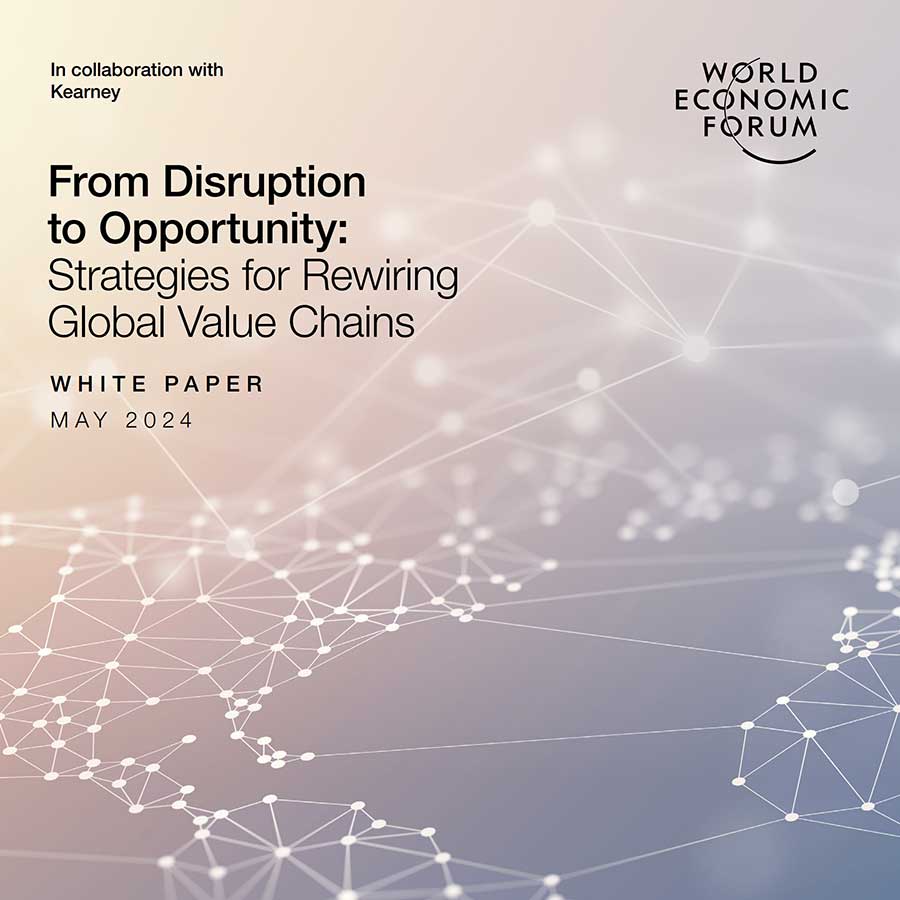Our SCL Industry Advisory Board has asked our team to invest in providing a future perspective on the evolution of Supply Chains and where we think the turns, peaks, and valleys will lie. We will begin an effort to offer a credible future perspective, but it will take some time. In the meantime, we will share some perspective and thoughts on pieces we see that are worth a good read. We will also offer some advice for those who need guidance or an additional data point on their action plans to lead their Supply Chain. The referenced article is a good one. Please scan our summary and if it piques your interest, the article is a good 15-minute read. Here are our thoughts:
In today's rapidly evolving global landscape, supply chain leaders must adopt a forward-thinking approach to ensure resilience, innovation, and sustainability. As disruption becomes a constant, assessing supply chains from a risk and resiliency perspective is no longer optional—it is essential. This article explores key themes for future-proofing supply chains, offering a self-assessment framework and insights into what leaders are doing to stay ahead.
Disruption is now a permanent fixture in supply chains, driven by factors such as geopolitical tensions, climate change, and technological advancements. To navigate this new reality, companies must develop a risk and resiliency capability that informs long-term infrastructure, supplier, and sourcing strategies, as well as supply chain planning. This proactive approach is critical to maintaining operational continuity and competitive advantage in an increasingly unpredictable world.
Implementing changes such as nearshoring or reshoring is a complex and costly endeavor that requires a long-term commitment. While these strategies can mitigate risks and enhance supply chain resilience, they involve significant investment and time. Leaders must be pragmatic about the costs and benefits, ensuring that investments align with long-term strategic goals and risk reduction priorities.
Artificial intelligence (AI) and digital technologies hold immense promise for enhancing supply chain efficiency and agility. However, managing expectations and maintaining discipline around the problems to be solved is crucial. Organizations must realistically assess their current readiness and capability to adopt these technologies, balancing short-term realities with long-term potential benefits. Successful digital transformation requires a clear strategy, substantial investment, and a culture willing to embrace change.
Demographic shifts and skill gaps necessitate a strategic approach to talent management in supply chains. Organizations must be intentional about understanding their current workforce realities and planning for the future. This involves investing in continuous upskilling and reskilling programs to ensure that employees are equipped with the skills needed to navigate the complexities of modern supply chains. Building a diverse and inclusive talent pipeline is also critical for fostering innovation and resilience.
Sustainability must be embedded in supply chain strategies to create long-term value for businesses and society. While the journey toward sustainability can be challenging and requires a balanced approach, it is essential for future competitiveness. Organizations must objectively assess what is beneficial for both the business and the environment, balancing short-term operational needs with the long-term interests of future generations. This involves setting clear sustainability targets, investing in sustainable technologies, and engaging stakeholders across the supply chain.
In a competitive marketplace, focusing on a clear and evolving value proposition for customers is crucial. Companies cannot simply cut costs to achieve success; they must continually redefine their value proposition to differentiate themselves from competitors and meet changing consumer demands. This requires a deep understanding of customer needs, continuous innovation, and the ability to swiftly adapt to market changes.
To evaluate your organization's readiness for the future of supply chain management, consider the following questions: How robust is your risk management strategy? Are you proactive in identifying potential disruptions and developing contingency plans? Do you have a clear long-term plan for initiatives like nearshoring, and are you realistic about the costs and benefits? What is your current level of digital maturity, and are you clear about the specific problems AI can solve for you? Are you investing sufficiently in upskilling and reskilling your workforce, and how are you addressing demographic shifts and skill gaps? Do you have measurable sustainability goals, and how do you balance short-term business needs with long-term environmental goals? Finally, how well do you understand your customers' evolving needs, and are you innovating to maintain a competitive edge?
Leading organizations are already taking significant steps to address these challenges. In the realm of risk and resiliency, they are developing comprehensive risk management frameworks and investing in technologies that enhance supply chain visibility and agility. For change management, they are committing to long-term strategic initiatives like nearshoring while being pragmatic about the associated costs and timelines. In the area of AI and digital readiness, companies are implementing AI-driven solutions for demand forecasting and inventory management while continuously refining their digital strategies. Regarding talent strategy, they are creating robust upskilling programs and fostering a culture of continuous learning and adaptability. In sustainability, they are setting ambitious targets and collaborating with suppliers to achieve them. And in terms of customer value, they are leveraging data analytics to gain deeper insights into customer preferences and tailoring their offerings accordingly.
We welcome your reaction and thoughts on this article and if you would like to talk about it, let us know and we’ll set up some time.
Thanks,
Chris and the SCL team

